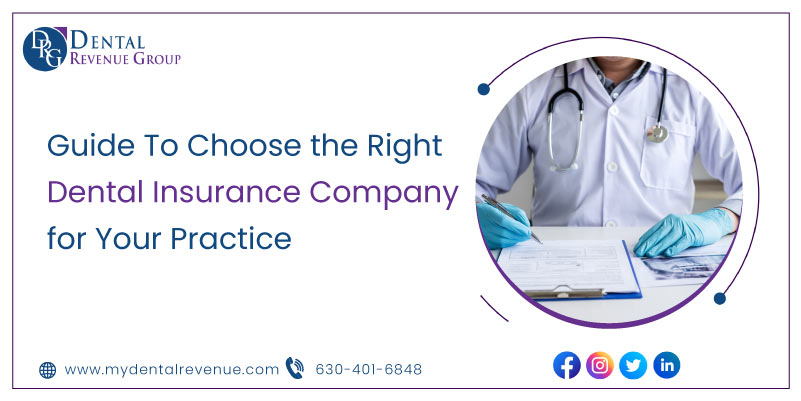Dental plans are available to help you budget and plan for dental care, as it is an important aspect of overall health. Different types of dental plans are available, ranging from basic coverage for general care to major care like dental implants. Individuals and families can choose the most affordable plan that suits their specific dental care needs.
Understanding Dental Insurance
Dental insurance is a policy that covers the cost of dental work, including emergencies and routine check-ups. Patients pay the dentist first and then claim back their money from the insurance company. The insurance covers treatment at both NHS and private dental clinics. Immediate claims can be made for preventative treatments like routine exams, x-rays, and scale and polish by dentists or hygienists. Waiting periods apply to other benefits before claims can be made, usually between one to three months after purchasing the insurance.
What Do Dental Plans Cover?
Dental plans vary depending on the specific plan and provider. However, most dental plans typically cover a range of preventive and basic dental services and some more extensive procedures.
|
Type of Coverage |
Description |
| Preventive Care | Covers routine cleanings and fluoride treatments, often with no deductible or waiting period |
| Basic Services | Includes simple fillings or emergency treatment for dental pain |
| Major Services | Covers more complex procedures such as root canals and retainers, subject to deductible and waiting periods |
| Network Access | Provides access to a wide dental network, including private and retail settings |
| Direct Payment | Allows for direct payment to in-network dentists without needing to submit claim forms |
| Age Coverage | Offers coverage for all ages, including plans designed specifically for seniors on Medicare |
It’s important to note that a dental plan’s exact coverage and cost can vary depending on the provider and specific plan chosen. It’s recommended to carefully review the plan details and speak with a representative to understand what is covered and any associated costs fully.
Dental Insurance Plans
Dental insurance companies offer different types of dental insurance plans, including fee-for-service, preferred provider organizations (PPOs), health maintenance organizations (HMOs), and discount plans. It’s important to understand the differences between these plans and choose the one that best suits your practice’s needs and your patients’ preferences. Dental insurance plans can be broadly categorized into indemnity, Managed Care, and Discount.
Indemnity Plans
An indemnity or freedom-of-choice dental plan offers the most flexibility to members as they can see any dentist they choose. The plan will reimburse based on its fee schedule, but the member is responsible for paying the difference between what the dentist bills and what the plan pays. However, some dental indemnity plans may have low coverage limits.
Managed Care Plans
Require patients to choose from a pre-approved list of dentists in a network of providers who have agreed to discount their fees. It can be dental PPOs or dental HMOs. Dental HMOs tend to be more restrictive and have lower premiums. Dental PPOs tend to have higher premiums for comparable amounts of coverage.
Dental Discount Plans
Dental discount plans are not insurance but provide discounts when you see dentists who have agreed to be part of the plan’s network. Unlike many dental insurance plans, there are no waiting periods before you can start receiving discounts. These plans are less expensive than dental insurance, but you pay for your treatment at a discounted rate.
Note: Dental indemnity plans tend to have the highest premiums for comparable coverage amounts. Dental discount plans are generally less expensive than dental insurance but don’t provide insurance coverage.
Steps To Follow When Choosing the Right Dental Insurance Company
When obtaining dental insurance through your employer, the available plan options may be limited. However, larger employers may offer a range of plans. If you are purchasing dental insurance on your own, you can choose any plan offered in your area.
Different dental plans have different restrictions on which dentists you can see, and plans that offer freedom of choice might not be the best option if they have low reimbursement rates or limited benefits. Here are the following steps to follow when choosing a dental insurance company:
Coverage
When choosing a dental insurance company, it is important to check if the plan covers your dental practice’s procedures and treatments. This means that you should carefully review the coverage options provided by the insurance company to ensure that they align with the needs of your practice and your patients. Start by listing the procedures and treatments your practice commonly performs, such as regular cleanings, fillings, root canals, orthodontics, or cosmetic procedures. Then, check the insurance company’s plan details to see if those procedures are covered.
Dental insurance coverage can vary greatly, with most plans covering only 50-60% of extensive dental work. Check what percentage of dental work is covered when looking at plans. Some plans cover all maintenance work and 50% of other work up to a capped amount, while others cover up to 60% of all work up to a higher amount. If you’re younger, look for a plan that covers maintenance; if you’re older, consider a plan that covers more extensive work.
Moreover, it is important to check if the dental insurance company covers more extensive treatments like braces or dental implants, which can be expensive and may not be covered by all insurance plans. By taking the time to carefully review the coverage options offered by a dental insurance company, you can ensure that you choose a plan that provides the coverage for your practice needs and offers your patients the best value for their money.
Consider Your Deductible
When choosing a dental insurance company, consider the deductible amount and ensure it is reasonable and aligns with your practice’s needs. A deductible is an amount you must pay before your insurance starts to cover your dental costs. Some plans have no deductible, while others have a yearly deductible that resets yearly. If your teeth are healthy, you may not reach the deductible in a year with just cleaning and x-rays. However, you’ll need to meet the deductible first for more extensive work. Plans may have exceptions for essential dental work, so you don’t have to meet the deductible for maintenance work. To choose the right deductible, consider how much dental work you’ll need. A low deductible is better if you require extensive work, but it also means paying more monthly.
Choosing Between DHMO and PPO Dental Insurance Plans
DHMO and PPO are two types of dental insurance plans you can choose from. A DHMO focuses on keeping costs low and covers cleanings and x-rays without meeting a deductible, although you may have to pay a co-pay. However, your choice of dentists may be limited. On the other hand, a PPO offers more freedom to choose your dentist, but you’ll need to meet the deductible before any services are covered, even maintenance. PPOs tend to be more expensive overall. If you want more dentist options, choose a PPO. You may also come across an indemnity plan, which allows you to select any dentist, and the insurance company pays a percentage of the cost.
Consider The Yearly Cap
The limit, or annual maximum, is the maximum amount an insurance company will pay for dental coverage in a year, usually around $1,000 to $1,500. Higher caps are available with higher premiums. Maintenance work is usually not included in the cap; only more extensive dental work counts towards it. If you anticipate needing a lot of dental work, a higher cap may be necessary, but it may come with higher premiums.
Remember that the cap only applies to what the insurance company pays; if the plan covers only 50%, you are responsible for paying the other half. It’s essential to review the yearly cap offered by a dental insurance company to ensure that it provides sufficient coverage for your patient’s needs and doesn’t limit the treatments your practice can provide.
Narrowing Down Your Choices
Consider the Premium:
The premium is a consistent cost you’ll pay monthly to have insurance. Dental plans are usually cheaper than health insurance, with premiums under $50 a month. Higher premiums sometimes mean more coverage, as costs vary widely by company.
Compare Benefits and Costs:
When comparing plans, compare benefits and premium costs. Aim for the highest coverage for the lowest premium. Think of it like choosing a blanket that covers your feet for the same price as one that doesn’t.
Consider Waiting Periods:
Waiting periods can delay your access to dental services. Some plans require waiting periods before covering extensive or maintenance work. Waiting periods are put in place to discourage people from dropping coverage. Choose a plan with shorter waiting periods if you need dental work soon.
Finding Insurance
Choose a Dentist:
Consider your preferred dentist before purchasing insurance. Not all insurance plans cover every dentist, so check if your dentist is covered before buying a plan. Keep going to your favourite dentist, who knows your dental history and preferences.
Consider group coverage:
If you have a job or are part of an organization, you can purchase dental insurance at a group rate. Buying insurance with other people can make it cheaper. Look for other groups or organizations that offer discounted rates. Your college or groups like AARP may provide group rates for dental insurance. Medicaid and the Affordable Care Act Marketplace may also offer discounted rates.
Understanding Dental Insurance Limitations
Before choosing a dental insurance company, it’s important to understand the plan’s limitations, such as exclusions, waiting periods, and restrictions on specific procedures or treatments.
Annual and Lifetime Maximums
Unlike health insurance plans, dental insurance plans have annual and lifetime maximums for coverage of services.
Annual Maximums
The annual maximum is the amount of money a dental insurance company will pay towards your dental care in a year. The yearly maximum of dental insurance plans varies greatly, from $1,000 to $3,000.
Lifetime Maximums
The lifetime maximum is the maximum amount that an insurance plan will pay for a specific service over your lifetime. Plans have different lifetime maximums for different services, such as orthodontia. It is important to review a dental insurance plan’s annual and lifetime maximums before choosing it.
Review The Company’s Customer Satisfaction
When choosing a dental insurance plan, it’s important to look at the numbers and the level of service the company provides. To better understand how well the company treats its customers, you can check customer satisfaction ratings and reviews. This will help you make an informed decision about which plan to choose. Research the insurance company’s reputation in the industry. Look for reviews from other dental practices and patients, and check for complaints or negative feedback. Ensure the insurance company has good customer service and is responsive to any questions or concerns you or your patients may have.
Costs Of Dental Insurance
The cost of dental insurance can vary depending on several factors, such as coverage and out-of-pocket costs. Comprehensive coverage costs $47 per month, while a preventive care dental plan costs $26 monthly. Consider the cost of the insurance plan for both your practice and your patients. Ensure the premiums and deductibles are reasonable, and the coverage is worth the cost. Here are examples of monthly expenses for dental insurance plans offered by different insurance companies:
| Insurance Company |
Dental Plan Name |
Monthly Cost Example |
| Ameritas | PrimeStar Access | $49.98 |
| Anthem | Essential Choice PPO Platinum | $79.49 |
| Cigna | Cigna Dental 1500 | $49.00 |
| Delta Dental | Delta Dental PPO Individual – Premium Plan | $64.92 |
| Denali Dental | Ridge Plan 750/1500/2000/2500 | $68.55 |
| Guardian Direct | Diamond | $58.40 |
| Humana | Preventive Value | $21.99 |
| Spirit Dental | Core Network | $43.37 |
| UnitedHealthcare | Primary Plus Dental | $43.59 |
The Bottom Line
When choosing the right dental insurance company, it’s important to consider factors such as coverage options, network providers, and cost. Careful evaluation of these factors can help ensure you select a dental insurance plan that meets your needs and budget while providing comprehensive dental care.











